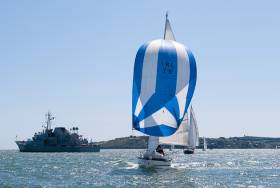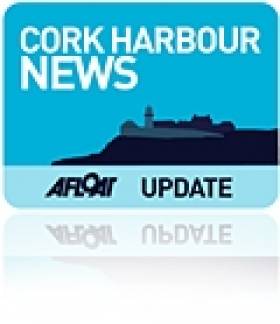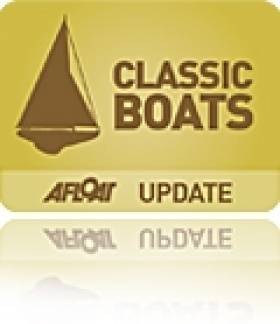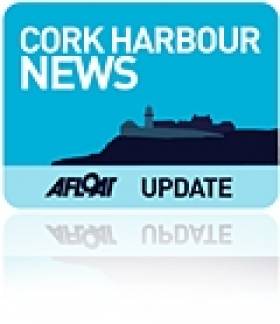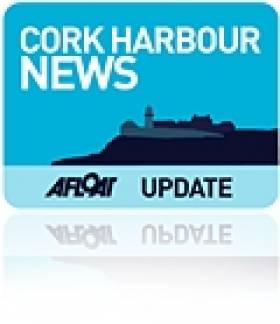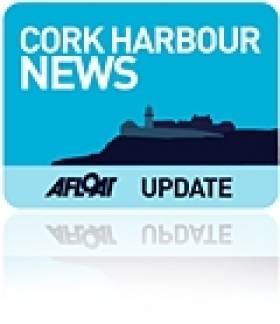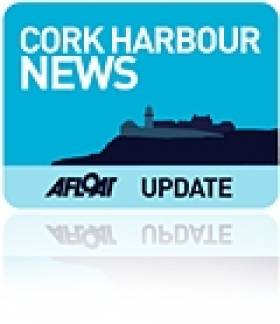Displaying items by tag: Cove Sailing Club
Cobh to Blackrock Race 2016 Postponed Due to Forecast
Due to this weekend's unfavourable weather forecast for Cork Harbour, Cove Sailing Club has postponed its Cobh to Blackrock Race until Saturday the 17th of September.
Cove Sailing Club Expect Over 100 Yachts for Annual Cobh to Blackrock Race
#cove – Starting at 13:00hrs off Cobh Promenade on Saturday, Cove Sailing Club stages its annual Cobh to Blackrock Race season highlight in Cork Harbour. The Port of Cork and Union Chandlery have once again agreed to sponsor this year's racing that attracted over 100 boats in 2013.
The course is to continue along its traditional route passing Ringaskiddy, Monkstown, Passage, across Lough Mahon and along to the finish at Blackrock Castle.
All boats are then invited to continue up to the City Quays where complimentary overnight berthing will be provided by the Port of Cork at the Cork City Marina.
This year Cove Sailing Club are also very pleased to be able to invite competitors and their guests to the prize-giving at The Sextant which is just opposite the City Quays marina. A barbecue and home-made pizzas will be available at preferential prices for crews together with the Sextant's huge range of top quality beer and wine.
#tradsail – Now in its fourth year, Cobh Traditional Sail Regatta will be held from 27th to the 29th June 2014, on the waters adjacent to the amphitheatre of the town of Cobh. The event is organised in association with The Cove Sailing Club and the Naval Service Yacht Squadron. It is an opportunity to enjoy both sea and shore activities with traditional sailing trips, traditional music, sea shanties and an eventful prize giving ceremony.
The opening ceremony takes place in the Sirus Centre on Friday 27th at 19.30 hours, with entertainment provided by local sea shanties group the Mollgoggers and local musicians
On Saturday and Sunday a full programme of events is planned with the Rankin, Cork harbour One Design and White Sail Fleet racing in the beautiful setting of Cork Harbour. There will also be an opportunity to tour the traditional wooden vessels the Ruth, the Irene and the Soteria. Tours are also available to Spike Island .
In keeping with the ethos of the festival of promoting sailing amongst young people the festival is sponsoring eight young people to participate in a week's sail training on the Spirit of Oysterhaven in June. These teenagers are drawn from various schools and organisations in Cobh.
For more information click for the tradsail website
Cork Harbour Combined League Launched for 2013 Sailing Season
#corkharbour – With the aim of providing better racing for Cork harbour class three yachts, a new harbour intiative this season attempts to combine up to 30 yachts currently split between different clubs and courses, namely Royal Cork Yacht Club and Cove Sailing Club.
There will be two races held each month between the months of May and September inclusive (Dates and organisng club below),
There is currently between 20 and 30 class three boats racing every week in cork harbour, but unfortunately they are split between different race courses and clubs.
With the combined league organiser Kieran O'Connell says they will be creating a common ground for all to meet up and 'truly explore the potential that class three has in Cork harbour'.
There will be a prize giving dinner in November.
All boats wishing to get involved in this league please contact Kieran O'Connell via the PDF flyer downloadable below. Closing date for entries is May 10th 2013.
Dates and Organising Club
May 10th Friday night Cobh
May 30th Thursday night RCYC
June 7th Friday night Cobh
June 21st Mid Summer Madness RCYC
July 14th Scora Chps Cobh
July 27th Race to Aghada RCYC
Aug 18th Cobh Peoples Regatta Cobh
Aug 29th Thursday night RCYC
Sept 7th Cobh to Blackrook Cobh
Sept 14th Naval Race RCYC
Cobh-Blackrock Race Raises Funds for Joe English Trust
#cobhtoblackrokrace – 80 boats of all shapes and sizes competed in yesterday's Cork Harbour Cobh to Blackrock race sponsored by the Port of Cork and Union Chandlery and hostedy by Cove Sailing Club.
The "all-in" start for 60 cruisers off the Cobh line was exciting both for the spectators and crews alike.
After racing 40 ribs and boats rafted up at the City Quays marina and a big crowd gathered at the Boardwalk Restaurant for the prize-giving and popular barbecue.
A raffle held after the prize-giving raised a massive €650 for the Joe English Trust.
Cove SC Prepares for SCORA Championships
Cobh to Blackrock Race was Scorching Success
The racing was started from the beautiful Ketch Soubrette from the Naval Service Yacht Squadron Cove S.C. First off were the slow dinghies and the white sail and classic yachts and these presented no problem to the Race Officer. However, when it came to the turn of the cruisers, with a strong flood tide they charged the line, and a general recall ensued. The Race Officer then proceeded to start the J80s before having another attempt at the cruisers Zero to Class Four. This time a Z flag was flown and anyone over the line in the final minute would have a 20% penalty applied. Happily, all went well on this occasion with a clean start and although the breeze was light and flukey all boats managed to make the finish at Blackrock Castle before the time limit. The finishing boat was a former Aran Class Lifeboat, the Samuel J and the first boat to reach the line was Jim Sheerin of Royal Cork Yacht Club in his Catamaran, narrowly beating Eddie English in the Holy Grounder from Sail Cork. In days gone by Eddie used always be first to the finish line in his yellow Hobie. Happy memories!
The event played a big part in the Port of Cork Open Day and for the first time the race had the benefit of the Port of Cork City Marina. When the boats had completed the race at Blackrock Castle they proceeded right up to the city for the prize giving and other festivities planned. All the local towns and villages in and around Cork had events planned for the Open Day and what a difference to last year when the event was completely washed out.
What a coup for Cove Sailing Club with the wonderful reinvigoration of this much loved event. One of the nice things about this is that young children were to be seen sailing with their parents and being given the opportunity to helm all types of craft from Catamarans to Cruisers. It was that kind of event and a wonderful way to get youngsters interested in sailing and fostering a love of the sport.
Photos of the event on the Afloat Gallery HERE


























